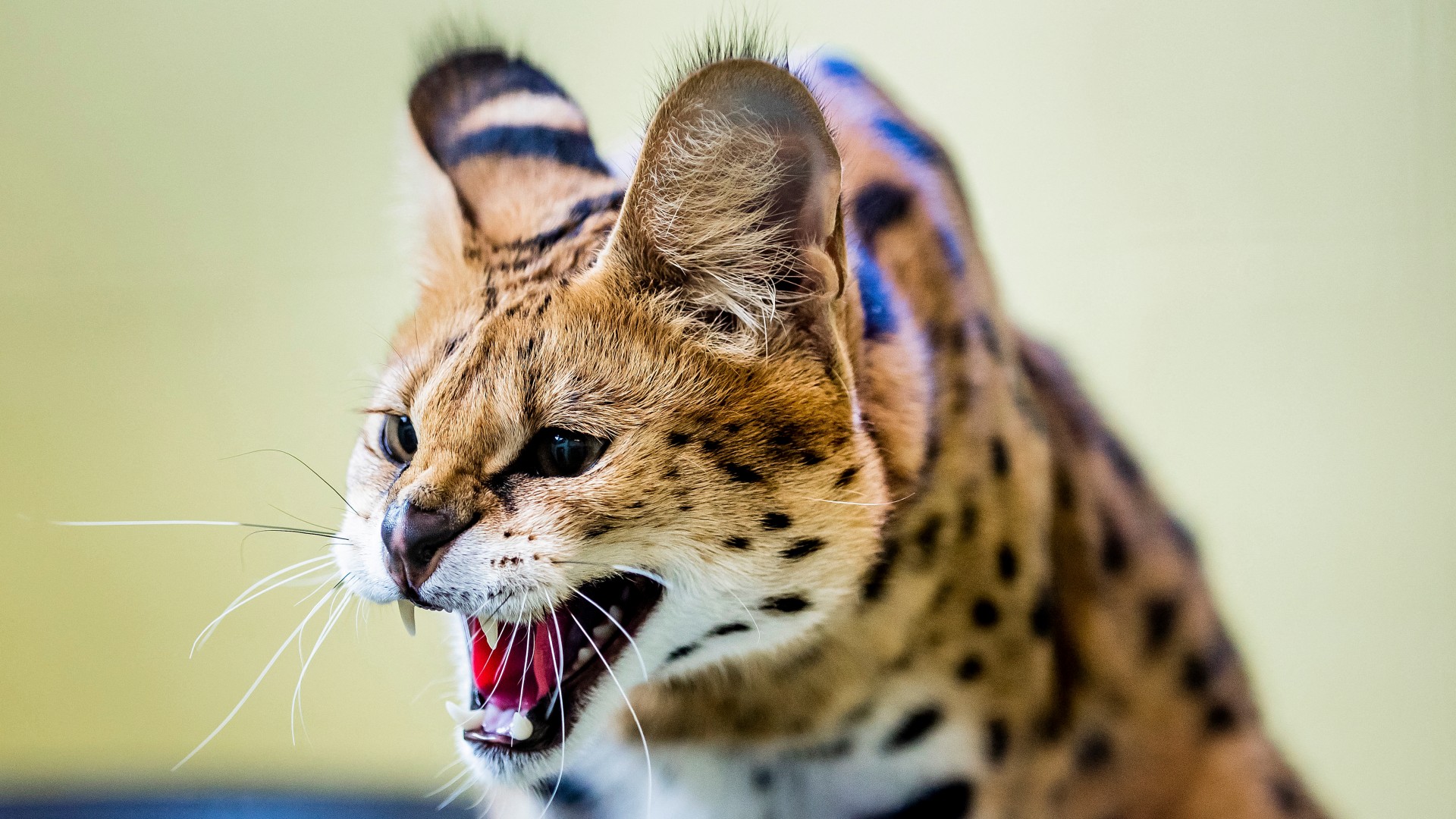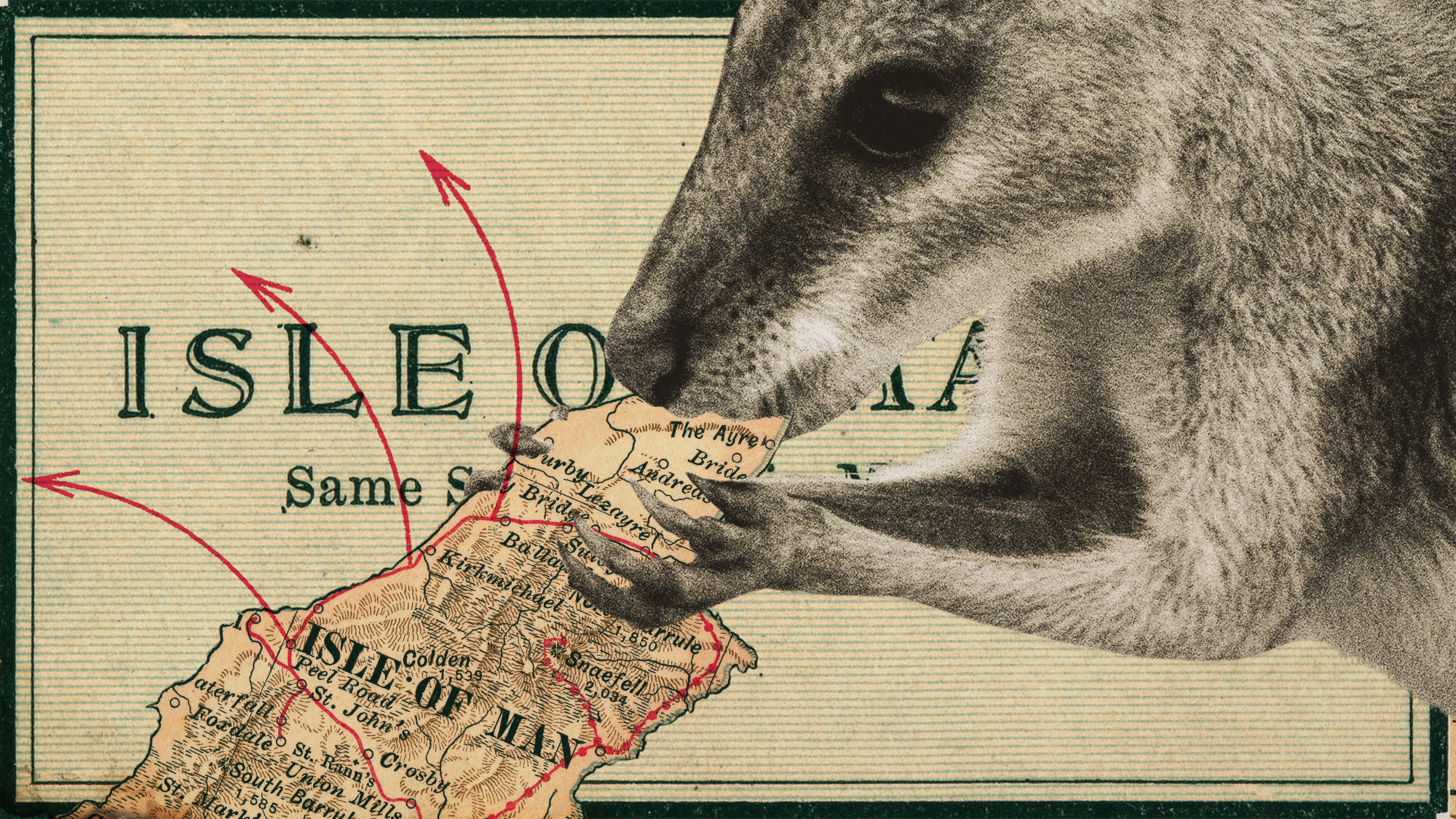The rise in dangerous exotic pets in the UK
More than 2,700 animals, including big cats and venomous snakes, are kept as pets under 'outdated' legislation

A free daily email with the biggest news stories of the day – and the best features from TheWeek.com
You are now subscribed
Your newsletter sign-up was successful
Britons are renowned for loving their pets but a dramatic rise in fanged rather than furry companions has sparked calls for "urgent action".
More than 2,700 dangerous animals, including lions, tigers and crocodiles, were being kept as pets in the UK in 2023, according to new research by wildlife charity Born Free. The "disturbing array" of wild animals included bush vipers in Bedfordshire, cheetahs in Cheshire and lynx in Lincolnshire, said the international organisation. This "staggering" number is an increase on the 2,500 calculated by the charity in 2022 based on council licensing data, The Guardian reported.
The Dangerous Wild Animals Act (DWAA) of 1976 established a "negative list" of animals that are illegal to own without a licence – but "anyone can apply" to their local council to be vetted for such a licence, said MailOnline. The legislation was intended to slow the trend of keeping exotic creatures as pets, but is now "woefully outdated", said Dr Mark Jones, head of policy at Born Free. The DWAA "should be overhauled as a matter of urgency", he said.
The Week
Escape your echo chamber. Get the facts behind the news, plus analysis from multiple perspectives.

Sign up for The Week's Free Newsletters
From our morning news briefing to a weekly Good News Newsletter, get the best of The Week delivered directly to your inbox.
From our morning news briefing to a weekly Good News Newsletter, get the best of The Week delivered directly to your inbox.
What exotic animals are most commonly kept as pets?
Venomous snakes made up the largest proportion of dangerous animals kept as pets, with more than 400 licences in the UK – 10 times more than are being kept in zoos, according to the charity.
Small cats are also popular, with 53 servals and 43 hybrid wild cats living in UK homes, making these jointly the most popular pet species.
The growing trend could be driven by popular social media accounts promoting servals as pets, Chris Lewis, Born Free's captivity research officer, told MailOnline. Some have hundreds of thousands of followers.
What are the issues with this trend?
Over the past decade, the growing popularity of snakes as pets has led to an increase in bites, usually after "deliberate handling" by owners, according to a 2022 study cited by Science Daily.
A free daily email with the biggest news stories of the day – and the best features from TheWeek.com
But animal rights activists are concerned about the toll domestic captivity takes on wild creatures. A 2021 joint report by Born Free and the RSPCA found that even the most well-meaning owners provide inadequate care, because of the specific needs of exotic animals. This leads to shorter lifespans, disease and "immeasurable animal suffering", the report said, as well as the "devastation of wild populations".
Some owners release their pets when their care proves too difficult, which risks "devastating consequences" to native wildlife, said Born Free in 2021.
The most high-profile example is the ongoing scourge of Burmese pythons in Florida. Between 1996 and 2006, nearly 100,000 were imported into the US as pets, but many were released or escaped and have since become invasive, said UC Berkeley Rausser College of Natural Resources. Scientists estimate there are now more than 300,000 enormous pythons living in the state.
Keeping wild-caught animals can present real danger to both humans and domestic pets because of the spread of diseases, known as zoonotic disease transmission. Every year, 2.7 million human deaths worldwide are attributed to zoonotic diseases, according to the Council on Foreign Relations, and the threat is "growing".
Between 2014 and 2018, more than three million animals were imported into the UK and sold as exotic pets, research by the charity World Animal Protection (WAP) found. As Discover Wildlife reported in 2020, many brought with harmful bacteria or viruses.
The trade is a "lethal hotbed of disease", said Peter Kemple Hardy, wildlife campaign manager of WAP. It brings wild animals with immune systems weakened by the stress of captivity into "unnatural proximity" to people and animals, "often in unsanitary conditions", he said.
The pet trade is also deadly at its inception: for every baby chimpanzee that becomes a pet, 10 were killed in the process, the Not a Pet campaign estimated. Many die during capture, or do not survive the journey overseas, according to the non-profit organisation International Fund for Animal Welfare.
What kind of change are people pushing for?
The UK's legislation is "piecemeal" and "reactionary", according to Born Free. The "negative" approach of banning, restricting and regulating species leads to loopholes, the charity said.
A more sustainable and future-proof method would be learning from the "positive" approach of Norway and some Belgian cities. Rather than saying what cannot be done in terms of owning exotic animals, the governments have outlined what must be done in order to own them. This includes considerations of the animal's welfare as well as the environment and human health and safety.
This approach has the "potential to significantly reduce the scale and scope of exotic pet trade and keeping", the report said.
Ultimately, said Jones, the UK must phase out the private keeping of species that "clearly don't belong in people's homes".
-
 The best music tours to book in 2026
The best music tours to book in 2026The Week Recommends Must-see live shows to catch this year from Lily Allen to Florence + The Machine
-
 Gisèle Pelicot’s ‘extraordinarily courageous’ memoir is a ‘compelling’ read
Gisèle Pelicot’s ‘extraordinarily courageous’ memoir is a ‘compelling’ readIn the Spotlight A Hymn to Life is a ‘riveting’ account of Pelicot’s ordeal and a ‘rousing feminist manifesto’
-
 The EU’s war on fast fashion
The EU’s war on fast fashionIn the Spotlight Bloc launches investigation into Shein over sale of weapons and ‘childlike’ sex dolls, alongside efforts to tax e-commerce giants and combat textile waste
-
 The environmental cost of GLP-1s
The environmental cost of GLP-1sThe explainer Producing the drugs is a dirty process
-
 The world is entering an ‘era of water bankruptcy’
The world is entering an ‘era of water bankruptcy’The explainer Water might soon be more valuable than gold
-
 Climate change could lead to a reptile ‘sexpocalypse’
Climate change could lead to a reptile ‘sexpocalypse’Under the radar The gender gap has hit the animal kingdom
-
 Why scientists want to create self-fertilizing crops
Why scientists want to create self-fertilizing cropsUnder the radar Nutrients without the negatives
-
 How drones detected a deadly threat to Arctic whales
How drones detected a deadly threat to Arctic whalesUnder the radar Monitoring the sea in the air
-
 ‘Jumping genes’: how polar bears are rewiring their DNA to survive the warming Arctic
‘Jumping genes’: how polar bears are rewiring their DNA to survive the warming ArcticUnder the radar The species is adapting to warmer temperatures
-
 How will climate change affect the UK?
How will climate change affect the UK?The Explainer Met Office projections show the UK getting substantially warmer and wetter – with more extreme weather events
-
 The UK’s surprising ‘wallaby boom’
The UK’s surprising ‘wallaby boom’Under the Radar The Australian marsupial has ‘colonised’ the Isle of Man and is now making regular appearances on the UK mainland